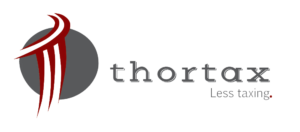Basic rule
We dealt with the basic rules in our previous note, which can be accessed in this link.
As a Swiss tax resident, all your income and assets must be declared in Switzerland. The rules regarding who needs to make a tax declaration in Switzerland are explained in the in this note.
Omitted items in previous tax returns
The authorities can “discover” this and you would be liable to any unpaid taxes plus interest and penalties and they can look into the last 10 years. Penalties are typically between a third to three times the unpaid taxes and besides you may be subject to further criminal proceedings, including time in prison, if falsified documents have been submitted for the purpose of tax avoidance.
Risk of a discovery
With the automatic exchange of financial data with many countries, it becomes easier for the information received from a foreign location to be matched against that which was disclosed on the Swiss tax returns.
It is here that the voluntary self-disclosure comes into play in order to regularise your tax situation.
What is the deadline for the “once-in-a-lifetime” voluntary self-disclosure
One of the main conditions for an unsolicited, “once-in-a-lifetime” voluntary self-disclosure to be accepted, and to have no penalties or criminal procedures to apply, is that the tax authorities are not aware, at the time of such declaration, that there has been a tax evasion.
It follows that when the automatic exchange of information agreements come into force, it can be understood that the tax authorities will already be “aware” of the exchanged financial information.
As there is not yet federal jurisprudence in this area, each canton is free to interpret the rules as they wish. Switzerland has 26 cantons and 38 countries with which it has already agreements that came into force at the beginning of 2017. The complete list of countries with agreements and the date they come into force can be found by following this link.
To exemplify how each canton interprets this deadline differently, Zurich and Basel-Land will accept voluntary self-disclosures which include accounts which will be part of the automatic exchange of information until 30.09.2018, since this is the date from when it is expected that the information will actually start to be exchanged by the countries.
However, canton Schwyz considers this deadline to be 31.12.2016 as the information is already been collected since the beginning of 2017. Other cantons such as Geneva, Aargau, Lucerne and Basel-Land consider the time limit to be 31.12.2017.
And what should do those who missed out the deadline for a spontaneous self-declaration?
The best approach when you notice that you have omitted something from your previous tax declarations, for whatever reason, is to discuss the matter with your tax consultant and agree how to disclose it to the tax authorities.
Even if you have missed the deadline for a spontaneous self-declaration without penalties, it is still recommended that you take the initiative to correct the error or omission, since the penalties vary depending whether the disclosure was voluntary or discovered by the tax authorities.
Further questions
The main message to take from here is, if there was an omission, it is very important to regularise the situation as quickly as possible since a discovery can happen through other means.
Get in touch with your most specific questions, our team comprises of specialists with many years of experience in the field of taxation and self-disclosure proceedings. They will be able to assist you on a strictly confidential basis.
________________________________________________________________
This content is for general information purposes only, and should not be used as a substitute for consultation with professional advisors.

